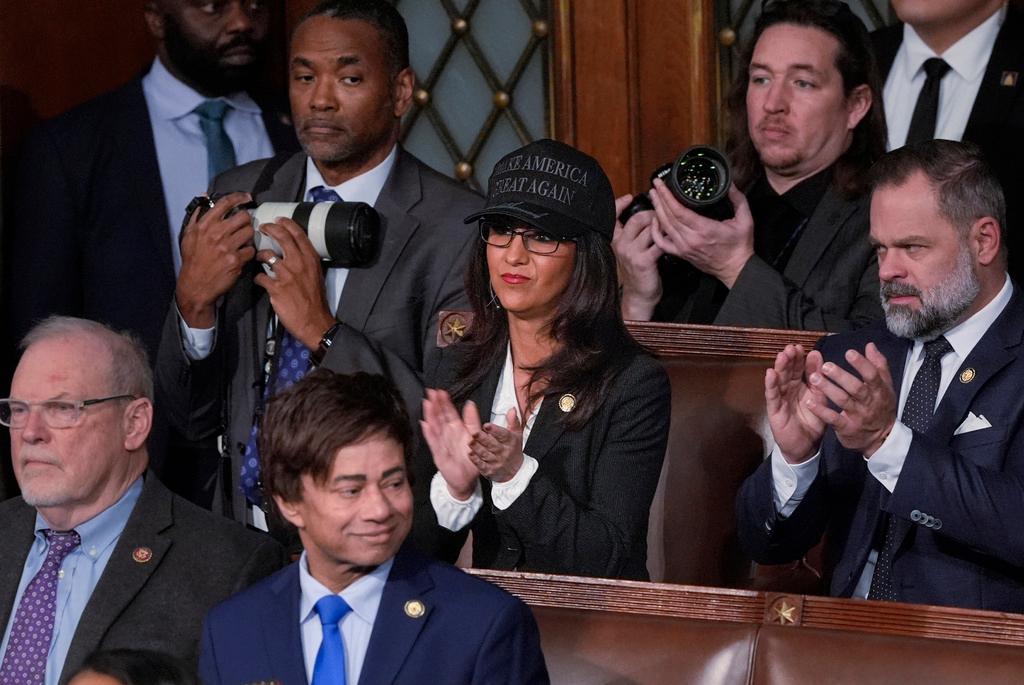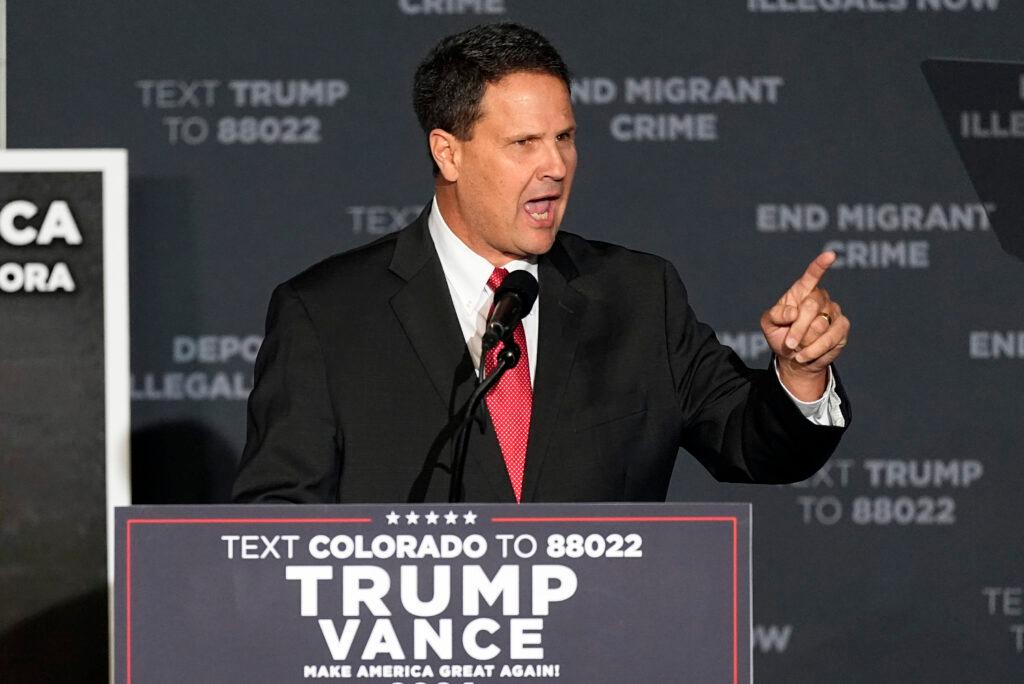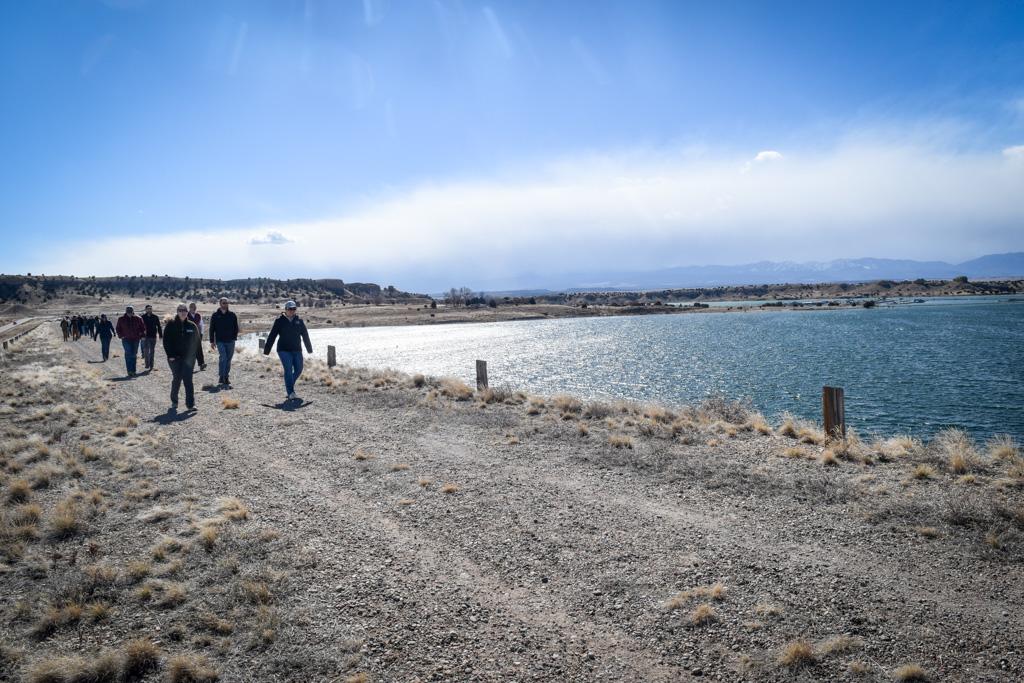
Republican Rep. Lauren Boebert held a telephone town hall Wednesday night, the latest Colorado Republican to choose this method to talk with constituents as several Democrats have held in person town halls.
“It’s a great way to connect with such a large district,” Boebert said as her virtual town hall kicked off, adding later that “it’s such a convenient way to reach about 10,000 people, maybe more, in our district.”
While Boebert took a couple of questions on issues she supports, such as how House Republicans can quickly pass President Donald Trump’s legislative agenda and what more the federal government can do against so-called sanctuary cities, the majority were more challenging.
The first question was about the president’s advisor, Elon Musk, and the “overreaching of DOGE,” especially in trying to access personal information. Boebert said Musk was being “careful and responsible when it comes to any data” and praised the billionaire for “exposing the waste, fraud and abuse of our taxpayer money.” In contrast, she said she “fought against the Democrat bill that hired 87,000 armed IRS agents to snoop in your bank account.”
The Biden administration approved hiring 87,000 IRS employees, customer service representatives, lawyers, examiners, technicians and appeals officers, as well as auditors, over 10 years. Only IRS Criminal Investigation Special Agents, the IRS’s law enforcement agency, are armed.
Boebert also fielded questions on the GOP budget resolution, and worries that it could lead to cuts to Medicaid and SNAP; how staff cuts at the U.S. Forest Service may impact wildfire prevention and preparedness, and Trump’s deportation of migrants to El Salvador without due process.
“If someone is in our country illegally, I don't believe that there is much due process that is afforded to them. They do not have American citizens’ rights. And they broke our nation's laws being here illegally,” she answered.
In response to the question about the Forest Service layoffs, Boebert blamed decades of poor forest management and said there needs to be better active management.
“Let’s be clear, we have a bloated bureaucracy, and spending does not equate to better outcomes,” she said.
Unlike an in-person town hall, questioners couldn’t follow-up or interrupt and the 8,000 or so listeners couldn’t boo or cheer, something that has been happening at in-person events held by Republicans in other parts of the country.
Earlier this month, House Republican leaders urged their members not to hold in-person town halls to avoid viral moments of angry crowds challenging them on cuts and layoffs made by the Trump Administration. Coming out of that meeting, Boebert told CPR News that, “for me personally, it’s not safe to do an in-person town hall. I’m happy to do tele-town halls.”
As Boebert mentioned, virtual forums like this are an easy way for members of Congress to talk with thousands of constituents in large districts or when they’re in Washington, D.C.
It also has the added benefit of saving Republican lawmakers from some of the theatrics around in-person events, said Republican strategist Tyler Sandberg with Timor Strategies.
“The in-person town halls, unfortunately, have become more theater than dialogue,” Sandberg said, noting it’s generally the most politically engaged voters who take the time to go to an in-person meeting. “Even when the environment isn’t as politically heated, you really lack that representation of regular people who you’re supposed to represent, not just the loudest voices in the room.”
Freshman Rep. Jeff Hurd held a telephone town hall in mid-March, while he was in Washington, D.C. 7,500 people tuned in to hear him and his office said the questions were chosen randomly.
Still, not all were happy with that approach. A caller from Grand Junction asked Hurd when he planned to hold an in-person town hall “to have a little bit more personable interaction.”
Hurd admitted it’s important to see people face-to-face, but said, “I want to make sure that it’s a productive dialogue and that we’re talking about the issues I’m hearing from my constituents and that we’re not devolving into political theater.”
He faced some softball questions, such as being asked about a recent trip he took to the U.S.-Mexico border and how he’ll support the 2nd Amendment, and some tougher ones, like would he oppose efforts to sell or transfer public lands and whether he’ll support cuts to Medicare or Medicaid.
Hurd said he knows the latter is important to the district, where about 30 percent are on Medicaid. He added he supports “looking at something like work requirements” and he’s “committed to making sure that those who need Medicaid the most – the poor, the working poor, mothers, pregnant women, children – that they have access to that critical safety net.”
Democrats and Progressive groups have seized on the lack of in-person town halls to argue Republicans are afraid to face concerned voters. Last week, while Congress was on recess, Sen. Bernie Sanders and Rep. Alexandria Ocasio-Cortez drew 11,000 people to a rally in Greeley, in Rep. Gabe Evans’ district. Evans occupies the state’s only swing seat.
A spokesperson for Evans said liberal groups are taking over town halls “and we want communications with our constituents to be productive. We will do town halls and we will do them in a way that allows constituents’ concerns to be heard without being drowned out by yelling activists.”
So far though, Evans has not scheduled either an in person or telephone town hall.
In El Paso County, the group Indivisible organized a “town hall” during the recess where constituents lined up to ask questions to a cardboard cutout of Rep. Jeff Crank.
Crank, who represents a safe Republican seat, had over 7,000 people join his early March telephone town hall. He said thousands of questions were submitted, but his office did not answer questions about how he chose which to answer.

A perusal of some of his social media posts also show people calling for an in-person town hall, while comments on his post announcing his tele-town hall included frustration from people who submitted questions that went unanswered.
A former public school teacher who attended Sen. Michael Bennet’s town hall in Colorado Springs last week and vented her disappointment with her local representative there. “You have representatives like Jeff Crank, who I think is alive. I don’t know because he refuses to show his face.”
Strategist Sandberg said that while Republicans want to avoid paid political actors, they should engage on some of the tougher questions and not try to avoid voter anger.
“You represent people across the political spectrum, and some people are always going to dislike your policies, but you owe it to them – that you’re an elected representative – to have a dialogue with them, explain your reasoning for what you're doing (when it’s) not what they want you to do.”
- ‘Excuse after excuse’ — Colorado members of Congress criticize discussion of attack planning over Signal app
- With Democrats in disarray and Trump on the attack, many ask what is the way forward
- Bennet grapples with party’s future. “I think we should be looking at all the Democratic leadership”
- ‘You can’t start with a policy discussion’ As Democrats look to win back voters, Rep. Jason Crow sees a path forward
- At Pettersen townhall, worried opponents of President Trump ask what Democrats are doing to fight his agenda
- As the 119th Congress gets to work, Colorado members look to advance national priorities and local interests









